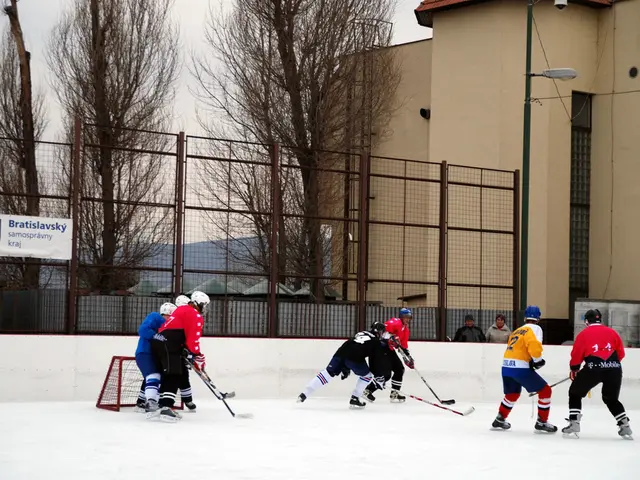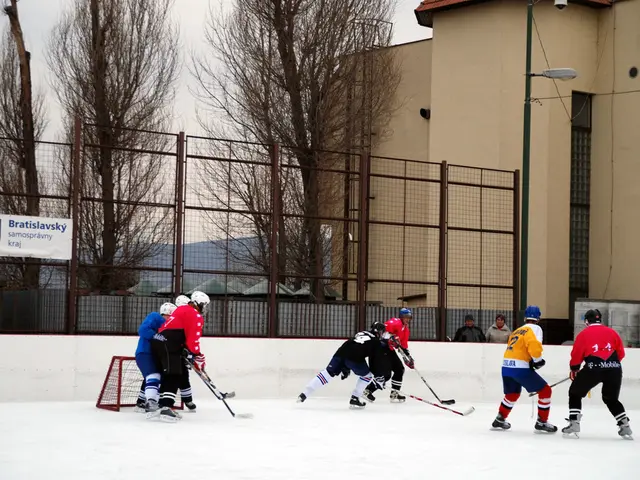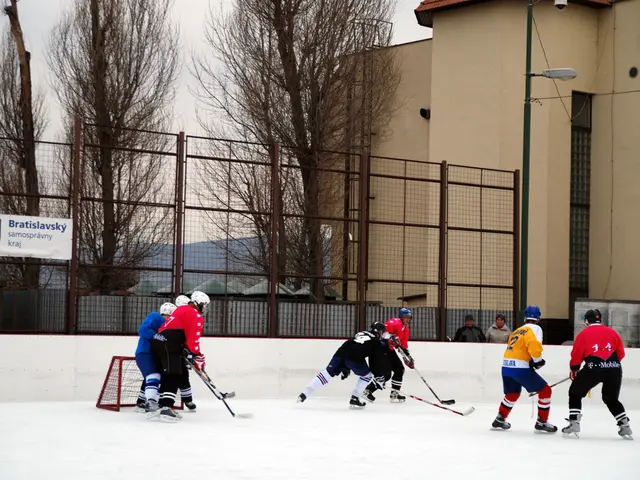EU-China Tensions Ease With Lifting of Sanctions Against European Lawmakers
China rescinds sanctions implemented against five politicians in 2021, as reported by the European Parliament.
In a surprising turn of events, China has scrapped the sanctions it imposed on five European Union lawmakers last year. These lawmakers were accused of "maliciously spreading lies and disinformation" and "grossly interfering in China's internal affairs." This bold move comes as a sigh of relief for the EU, marking an easing in the ongoing strained relations between the two powerhouses.
Initially, these sanctions were a response to coordinated sanctions imposed by the EU, the UK, Canada, and the United States against Chinese officials for alleged human rights abuses against the Uyghur Muslims in Xinjiang. The five EU lawmakers who were targeted include Michael Gahler, Raphael Glucksmann, Ilhan Kyuchyuk, Miriam Lexmann, and Reinhard Butikofer (though Butikofer is no longer a member of the parliament).
European Parliament President Roberta Metsola played a crucial role in negotiations to lift the sanctions. This development comes as a softening of the tensions between the EU and China that have been escalating since US President Donald Trump imposed tariffs on Beijing in early April. Metsola shared her thoughts, stating, "our relationship with China remains complex and multi-faceted. The best way to approach it is through engagement and dialogue."
Despite the sanctions being lifted, senior lawmakers are quick to clarify that this doesn't mean the European Parliament will overlook persistent challenges in EU-China relations. They remain adamant about their role as a strong defender of human rights and vow to continue focusing on these concerns.
Notably, the Inter-Parliamentary Alliance on China has issued a stern warning in response to the lifting of sanctions, stating, "to be clear, the removal of some sanctions by the totalitarian regime doesn't constitute a favour that warrants concessions from the EU."
As the global political scene evolves, the EU-China dynamic will undoubtedly influence international relations. The lifting of sanctions opens the possibility for greater economic cooperation, but the human rights concerns lingering around China's policies towards the Uyghur Muslims remain a contentious issue.
- European Parliament
- China
- Uighurs
- China's Uighur policy
Enrichment Data:
Overall:
Current Status
China has officially lifted sanctions it imposed on five European Union lawmakers in 2021. These sanctions were part of a broader response to EU, UK, Canada, and US sanctions on Chinese officials over alleged human rights abuses against Uyghur Muslims in Xinjiang[1][2][4]. The sanctioned lawmakers included Michael Gahler, Raphael Glucksmann, Ilhan Kyuchyuk, Miriam Lexmann, and Reinhard Bütikofer, although Bütikofer is no longer an active member of the parliament[1][4]. This decision also includes lifting sanctions on the EU parliament's Subcommittee on Human Rights[4].
Implications
- Diplomatic and Trade Relations:
- The lifting of sanctions marks a significant step in easing tensions between the EU and China, potentially paving the way for enhanced trade talks[2].
- Chinese officials have expressed a desire for increased exchanges and cooperation, inviting EU lawmakers to visit China[4].
- Human Rights Dialogue:
- While the sanctions have been removed, human rights concerns remain a contentious issue. The EU continues to push for dialogue and engagement as a strategy to address these concerns[1][4].
- European Parliament President Roberta Metsola highlighted the importance of engagement and dialogue in managing complex relations with China[1][4].
- Global Context:
- This move is also influenced by broader geopolitical factors, such as the ongoing tensions between the US and China. The US recently imposed tariffs on China, which may have accelerated China's desire to improve relations with the EU[1].
- As pressure grows over a potential US-China trade war, strengthening EU-China ties could offer strategic benefits for both parties[3].
Overall, the lifting of sanctions represents a tactical shift by China towards improving diplomatic and economic relations with the EU, while acknowledging the ongoing complexities and sensitivities regarding human rights issues.
- The European Parliament has welcomed the lifting of sanctions against its members by China.
- The removal of sanctions came as a relief for the EU, indicating a positive shift in its relations with China.
- China's move towards lifting the sanctions comes after coordinated sanctions were imposed by the EU, the UK, Canada, and the United States against Chinese officials for alleged human rights abuses.
- The five EU lawmakers who were targeted include Michael Gahler, Raphael Glucksmann, Ilhan Kyuchyuk, Miriam Lexmann, and Reinhard Butikofer (though Butikofer is no longer a member of the parliament).
- The EU Parliament's Subcommittee on Human Rights was also affected by the sanctions, but they have been lifted now.
- European Parliament President Roberta Metsola played a crucial role in negotiations to lift the sanctions.
- The EU remains adamant about its role as a strong defender of human rights and will continue focusing on these concerns.
- The Inter-Parliamentary Alliance on China has warned against concessions from the EU in response to the lifting of sanctions.
- The global political scene will be influenced by the evolving EU-China dynamic, particularly in terms of international relations.
- The lifting of sanctions opens the possibility for greater economic cooperation between the EU and China.
- Chinese officials have expressed a desire for increased exchanges and cooperation with the EU, inviting EU lawmakers to visit China.
- The human rights concerns around China's policies towards the Uyghur Muslims remain a contentious issue between the EU and China.
- Europe's stance on human rights is crucial in its dealings with China, and the EU will continue to push for dialogue and engagement to address these concerns.
- The Uyghur Muslims in Xinjiang continue to face allegations of human rights abuses, which the EU and other international bodies have strongly condemned.
- The ongoing tensions between the US and China have also played a role in shaping EU-China relations.
- The US recently imposed tariffs on China, which may have accelerated China's desire to improve relations with the EU.
- Strengthening EU-China ties could offer strategic benefits for both parties as pressure grows over a potential US-China trade war.
- Beyond politics, other areas of international cooperation include sports, with events like the Champions League, NFL, soccer, WNBA, baseball, hockey, golf, sports betting, and European leagues attracting widespread interest.
- Sports such as football, tennis, basketball (NBA and NCAA Basketball), auto-racing, mixed martial arts, racing (Grand Prix, horse racing, premier league, American football, and NHL) are popular worldwide and have their own controversies and policy-and-legislation issues.
- Weather and weather forecasting also impact sports events, especially outdoor ones, and can influence the outcomes of races and matches.
- Serie A and LaLiga are popular European football leagues, while NCAAs also organize football games.
- Crimes, accidents, fires, and incidents related to sports, politics, general news, crime-and-justice, and accidents can have significant consequences, affecting individuals, teams, and communities.










